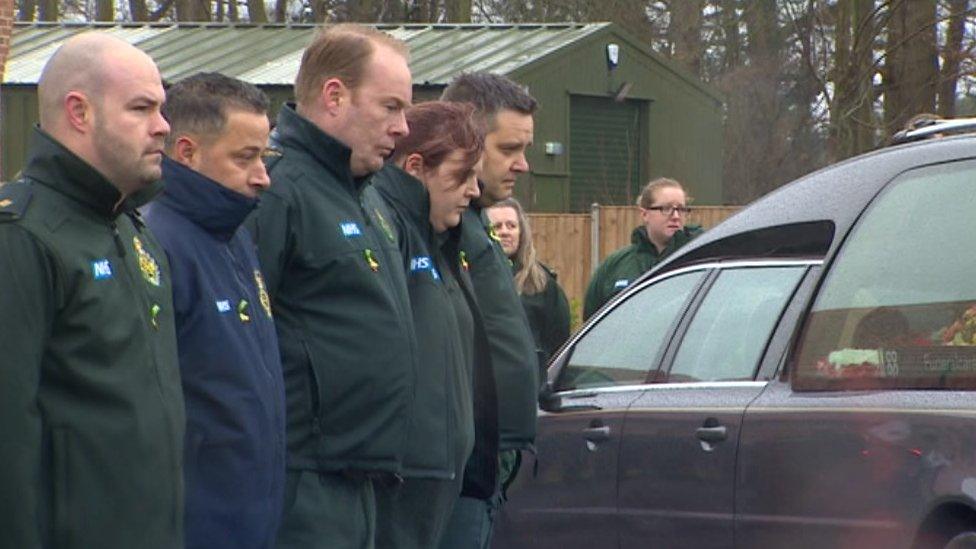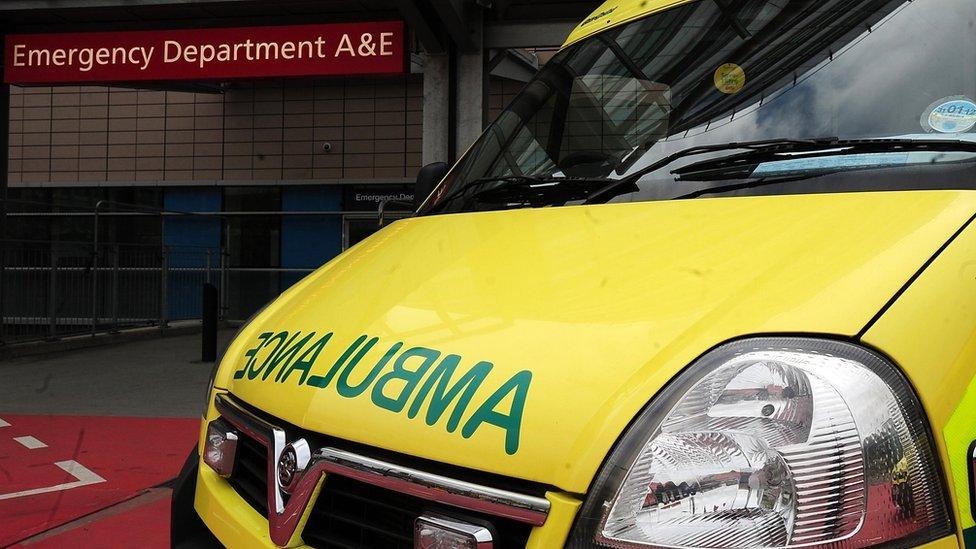East of England Ambulance Service staff deaths: Report calls for action
- Published

Luke Wright worked for the East of England Ambulance Service
An ambulance service must do more to support the mental health of staff and prevent suicides, a report into the deaths of three workers says.
East of England Ambulance Service (EEAS) workers Luke Wright, of Norwich, Christopher Gill, of Hertfordshire, and Richard Grimes, of Luton, died over 11 days in November.
The independent report has gone before the EEAS board.
The ambulance trust said it accepted the report's recommendations
One of the 12 recommendations was that the trust should "develop training for managers in supporting staff with mental health problems - in partnership with specialist mental health professionals".
It also said the EEAS should incorporate suicide prevention into its strategic goals.

Ambulance staff lined up to pay their respects as Mr Wright's coffin arrived
Another recommendation said the trust "needs to establish a programme of change and development to address sexual harassment and change the behaviours of staff and managers that enable it to thrive".
EEAS chief executive officer Dorothy Hosein said: "Losing three members of our staff in tragic circumstances is extremely sad.
"Staff wellbeing is influenced by personal, family and other relationships and experiences, as well as their employment.
"This has not been reflected in some of our policies and management of issues, which are still too tightly focused on just workplace performance."
She said the investigation "brings home clearly that the trust must do more to support the mental health of staff if they suffer problems or anxiety in their private, family or work life".

Luke Wright's brother said he "constantly had a smile on his face"
Mr Wright's brother Daniel said warning signs were missed as Luke had recently been talking about "taking a career break, when three year's prior to that, when he joined the ambulance service, he absolutely loved it... that should have been an immediate red flag".
Daniel Wright, who also works for the ambulance service, added: "It is paramount that mental health is kept to the forefront because we're dealing with situations that normal people won't be dealing with."
- Published10 December 2019

- Published22 November 2019

- Published22 January 2018

- Published19 January 2018

- Published18 January 2018

- Published17 January 2018
